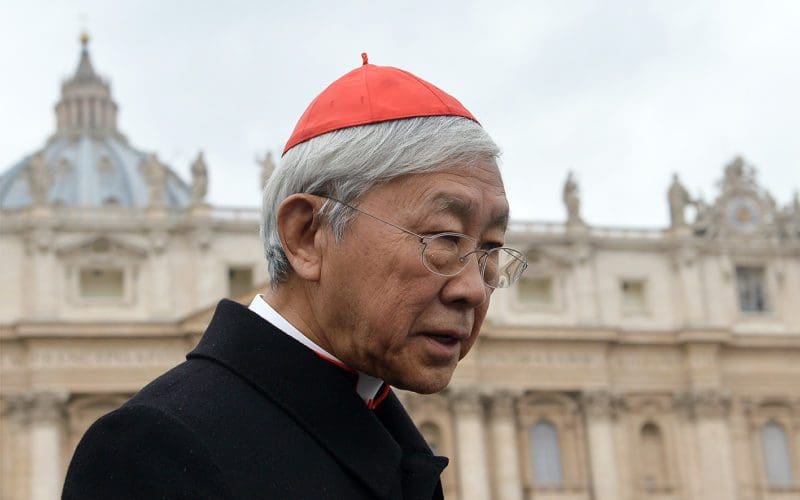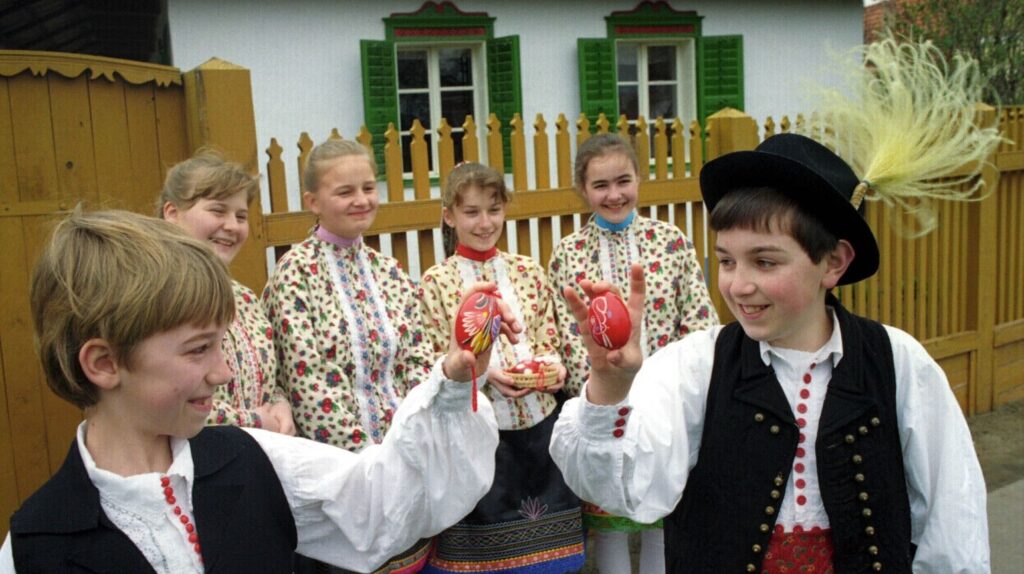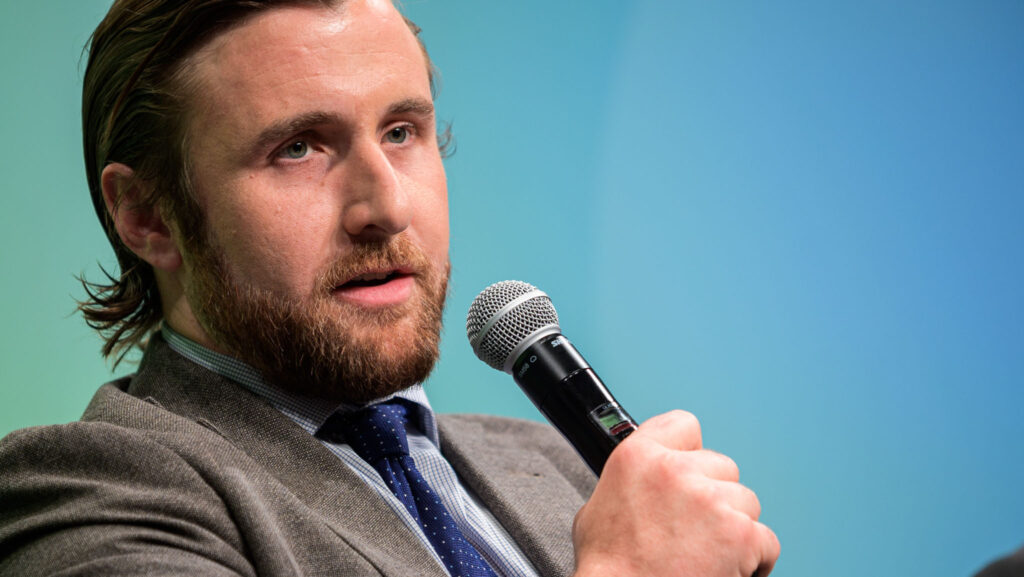On 15 September, on his return flight to Rome from Kazakhstan, Pope Francis was questioned by journalists on the current events in China, specifically about the fact that the Archbishop Emeritus of Hong Kong, Cardinal Joseph Zen, was to be tried on 21 September. (His trial was postponed because the judge to oversee the case was apparently diagnosed with Covid.) The cardinal is accused by the Chinese Communist Party (CCP) of failing to register a support fund. He was detained on 11 May under China’s national security law for ‘conspiracy to collude with foreign forces.’ The truth of the matter is that the CCP is castigating the ninety-year-old Zen for his staunch criticism of their violation of human rights, such as the suppression of free speech and freedom of religion, amongst others.
The Pope refused to define China as an undemocratic country, downplaying the gravity of the trial against Cardinal Zen underway in Hong Kong:
‘Qualifying China as undemocratic, I do not identify with that, because it is such a complex country… yes, it is true that there are things that seem undemocratic to us, that is true. Cardinal Zen is going to trial these days, I think. And he says what he feels, and you can see that there are limitations there. More than qualifying, because it is difficult, and I do wish to qualify, they are impressions, and I try to support the path of dialogue.’
The tragedy of this is, aside the fact that the fate of Zen and of likeminded activists for freedom is being neglected, that as Huang Xiaoning, the pastor at the Guangzhou Bible Reformed Church said:
‘The Chinese Communist Party wants to be the God of China and the Chinese People. But according to the Bible only God is God. The government is scared of the churches.’[1]
The other unfortunate aspect is that the entire history of Chinese Christian martyrs and truth-bearers is either being sidelined or altogether eradicated. For example, how many today know of St Paul Chen? He was the first Chinese national to enter the Tsin-gay major seminary in the region of Guizhou (Southwest China) in 1860. On 12 June 1861, soldiers raided the seminary and arrested him, along with another seminarian and two lay persons, a farmer and a widow who worked as a cook in the seminary. They refused to deny the faith and suffered martyrdom on 29 July 1861.
The Guizhou martyrs are a testament to the perseverance and the price paid to keep the Catholic faith alive in China after the persecutions began in the seventeenth century. There is also the famous account of the protomartyr of China, the Dominican St Francisco Fernández de Capillas, who after being imprisoned and tortured, was beheaded with others as they prayed the Sorrowful Mysteries of the Rosary.
Today there is the ongoing suffering of the ‘Underground Church’, which during Mao’s Cultural Revolution (1966-1976) had to worship in caves and other hideouts. It began to surface as the Christian persecutions eased during the 1990s, with regional variance. In regions with hardline CCP officials, the church remained ‘underground’, worshipping in people’s homes.
The persecutions eased quite a bit during Hu Jintao’s rule (2003-2013) when the term ‘underground church’ almost became obsolete and became ‘unregistered church.’ Many congregations rented commercial spaces and held church services openly while others built church buildings with full knowledge of and even official approval from the local government. This ended when General Secretary Xi Jinping took over the reins in 2012—Xi’s actual state title is goujia zhix: ‘state chairman;’ the English translation ‘president’ is a misnomer, to give the impression that Beijing’s body politic is comparable to American democracy.
The situation of Catholics is becoming more and more distressing
The situation of Catholics—as of those Taoists, Uighur Muslims, Buddhists, and others who refuse to submit to the CCP—is becoming more and more distressing. The CCP has even been granted the authority in a secret 2018 provisional agreement to appoint bishops. Renewed in 2020, the agreement continues to grant the CCP the right to name bishops, with the Bishop of Rome only confirming them thereafter. Other details of the pact have yet to be made public.
As Cardinal Raymond Leo Burke stated:
‘The agreement which the Vatican made with the People’s Republic of China in 2018—of which there is still no public record—has been, in practice, a repudiation of the tremendous suffering of countless Chinese confessors of the faith and martyrs for the faith at the hands of the atheistic communist government and has only resulted in a greater ongoing persecution of faithful Chinese Catholics.’
One of the modern-day heroes, who followed the example of St Paul Chen, was Cardinal Ignatius Kung, Bishop of Shanghai, who refused to submit to the CCP during the underground era. Consecrated a bishop in 1950, he spent thirty years in Chinese prisons for defying attempts by Beijing’s government to control Catholics in the country through the CCP’s state church, known as the Chinese Patriotic Catholic Association, which was recognised by the Holy See in the aforementioned 2018 agreement.
As written and mentioned on several occasions, I recall as a seminarian meeting him after he celebrated mass seated in a wheelchair, chanting it in a speckless Latin. It was said that one time during his imprisonment he could have been released had he only sung verses of the Chinese Communist national anthem. Instead, Kung chanted: ‘Tu es Petrus et super hanc petram aedificobo ecclesiam meam.’ (Thou art Peter, and upon this Rock I shall build my Church.”) —Matthew 16, 18
Kung was eventually released from prison and was elevated to the Sacred College of Cardinals by Pope St John Paul II. The irony is that Kung’s example strikingly contrasts the secret deal between the Vatican and Beijing—a reason, I sustain, why his cause for beatification and canonisation is stagnant.
It goes without saying that Pope Francis wants to establish formal diplomatic ties with China, which in itself is a good thing. After all, US President Richard Nixon opened relations with China with his visit to the country in 1972. This was, however, a geopolitical strategy to offset the influence of the Soviet Union, which would be expected of a statesman. The Roman Pontiff’s role, however, is not that of a politician and is supposed to go one step further, to say the very least.
Communist China is one of the greatest violators of human rights in the world. In fact, the US Congressional-Executive Commission on China in 2019 reported that religious persecution has increased—local Chinese authorities subjected Catholic believers in China to increased persecution by demolishing churches, removing crosses, and continuing to detain underground clergy. The Party-led Catholic national religious organisations also published a plan to ‘sinicise’ Catholicism in China. This is what many of the Chinese faithful continue to endure.
As a Catholic priest, I get much inspiration to persevere and continue in my vocation whenever someone says: ‘I’m praying for you,’ or in the words of Pope St John Paul II, to hear a member of the hierarchy say: ‘Do not be afraid.’ It would mean a great deal if the Pope were to publicly offer similar assurances to Cardinal Zen and to those in the ‘Underground Church’ who are constantly besieged by the CCP.
Individuals like Kung and Zen, and without a doubt those Christians who continue to suffer in their testimony to the Christian faith, are today’s unrecognised saints. Let us pray that one day their sacrifices and their struggle to maintain their human dignity will be recognised not just by the institutional Catholic Church, but by secular governments, too.
[1] Newt Gingrich, Trump vs. China: Facing America’s Greatest Threat, New York NY, Center Street, 2019, 66.








